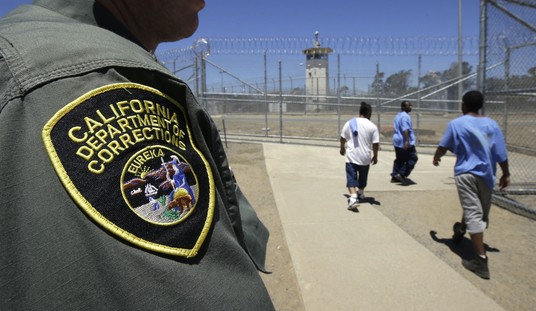The Wall Street Journal published an editorial yesterday titled “The DEI Rollback of 2023.” It primarily focuses on the shrinking footprint of DEI on campus, at least in many states, including a recent deal reached by lawmakers in Wisconsin.
Under a deal shaped by Wisconsin Assembly Speaker Robin Vos, the state approved $800 million in pay raises for university staff and for plans to build a new engineering building at the University of Wisconsin campus in Madison. In exchange, the university will freeze all DEI hiring, eliminate a third of DEI positions on campus, and create an endowed chair to teach “conservative political thought, classical economic theory or classical liberalism” at UW Madison. At least now there will be one conservative…
Democratic Gov. Tony Evers called the deal “obnoxious” and “B.S.,” according to WISN-TV. But lawmakers have an obligation to taxpayers not to fund policies that practice racial favoritism or promote hostility to equal opportunity.
Here’s an interview with Speaker Vos about the deal. He makes a pretty good case that the goal here is not to oppose diversity, racial or otherwise, but to oppose the kind of ideological indoctrination that DEI administrators enforce on campuses these days.
And that’s what the WSJ editorial is opposing as well. It concludes, DEI “has become a cudgel for political conformity and racial grievance.” But DEI doesn’t just exist on campus, it has also become part of many large corporations. However the corporate commitment, which ballooned during 2020, was already waning by the start of 2023. This Washington Post report was published in April.
A report from the workforce intelligence company Revelio Labs found that attrition rates for DEI roles have been outpacing those of non-DEI positions in more than 600 U.S. companies that laid off workers since late 2020 — and the attrition rates have increased in the past six months.
“It seems like companies are just shedding these DEI teams more and more,” said Ben Zweig, chief executive of Revelio.
Hiring of chief diversity officers declined 4.5 percent from 2021 to 2022, according to recent LinkedIn data, and some large employers cut positions. Amazon, Twitter, Wayfair, Nike and Intel are among big companies that slashed DEI jobs recently amid larger waves of layoffs.
In a follow-up story published today, the Post reports companies are now under pressure from lawsuits as well which follow from the Supreme Court’s decision to overturn affirmative action in college admissions. While that decision didn’t extend to other corporate efforts no one wants to become the test case.
In July, 13 Republican attorneys general sent a letter urging Microsoft and other Fortune 100 companies to reexamine their DEI policies in response to the Supreme Court ruling on affirmative action. The letter threatened “serious legal consequences” for companies that rely on race-based employment preferences, including “explicit racial quotas and preferences in hiring, recruiting, retention, promotion and advancement.”
Several suits have been filed since then by the American Alliance for Equal Rights (AAER), a group founded by conservative activist Edward Blum, who was behind the cases that culminated in the Supreme Court striking down affirmative action in college admissions.
It is “not surprising” that the Supreme Court opinion in June has “energized challenges” to policies outside the realm of education “that deal with race and ethnicity,” Blum told The Washington Post, adding that the decision “has refocused our civil rights law on that area of public policy.”
Several major companies have already made changes to their DEI policies to avoid attracting a similar legal challenge.
JPMorgan (JPM.N) received a letter in May 2022, alleging 10 of its DEI initiatives were discriminatory and unlawful. Around February 2023, the descriptions of the bank’s “Advancing Hispanics & Latinos” and “Advancing Black Pathways” programs were changed, according to archived versions of its website.
The programs that were previously for Black and Latino students now invite applications from all students, “regardless of background.”…
Investment manager BlackRock (BLK.N), which received a letter in April, removed language stating a scholarship was “designed for” members of specific underrepresented groups…
The companies where Reuters found changes included Pizza Hut operator Yum! Brands (YUM.N), American Airlines (AAL.O) and Lowe’s (LOW.N), which declined to comment…
In their most recent executive compensation plans, Yum! Brands removed references to specific racial groups and American Airlines dropped numerical diversity targets.
It will take time to know whether these changes were merely cosmetic fixes to prevent lawsuits or actual changes of direction. But at least companies are on notice that some of the things their newly hired DEI staff are pushing them to do are potentially illegal.








Join the conversation as a VIP Member